Heating, Cooling and Roofing Services Thurston, Lewis, Cowlitz, Mason, Pierce and Grays Harbor County
Chehalis Sheet Metal Heating & Cooling & Roofing Frequently Asked Questions
Special Offers Available | Financing Available | 24/7 Emergency Service
Special Offers AvailableFinancing Available24/7 Emergency Service
Learn More About Chehalis Sheet Metal Heating & Cooling & Roofing
Have an HVAC-related question? We have the answer. Check out these FAQs and give us a call today for more information!
Cooling FAQs
-
Can any home have central air?
Almost any home can include central air conditioning, if you’re willing to invest in ductwork and make design allowances for it. But before you make that decision, schedule an in-home consultation with an HVAC expert like CSM Heating—we can give you a better idea of what would be involved and also explain alternative cooling options, like ductless split which in itself has multiple applications.
-
When should I replace my existing AC unit?
Ideally, you should do it before your current system fails and leaves you rushed to make a replacement decision. Fortunately, there are a few signs that indicate it’s time to start looking at your options: your unit is more than 10 years old, it’s not keeping up with your needs, you notice a big increase in your cost to run it, or it needs regular refrigerant refills. In some cases, a simple repair may be all that’s needed, but if it’s no longer safe or practical to put more money into your AC, we’ll explain that, too, and make recommendations for the most appropriate replacement.
-
How much does a new air conditioner cost?
It depends on the size of your home and the type of unit, but systems typically start at $2,750. Check out our promotions for special savings, or consider financing, available with approved credit, if you’re ready for a new AC before your bank account is. Finally, consider installing a new cooling system when you buy a new furnace—by adding both units to your forced air system at the same time, you can save on time and labor.
-
What is the average life of an air conditioner?
Many air conditioners can last 15 to 20 years, if maintained properly. You may need a few repairs along the way, but your CSM Heating technician can usually catch and fix small problems during your annual Clean & Check.
-
How do I know what size air conditioning unit my house needs?
A licensed and insured HVAC specialist like those at CSM Heating should be consulted before you add or replace a cooling system. We’ll do a proper calculation that factors in the layout and square footage of your house, average climate, the number and type of windows, insulation, and even the number of people living in the home. Without these considerations, you could end up with a unit that is to small, meaning it will likely not keep up with your cooling needs or last as long as expected—or a system that is so big that it constantly cycles on and off and wastes energy.
-
What is SEER?
All air conditioners have a Seasonal Energy Efficiency Rating (SEER). The higher that number is, the more efficient your unit is. The current industry minimum for new air conditioners is 13, but state-of-the-art equipment can reach a SEER as high as 21. While the initial cost of the latter may be higher, the lower monthly operating costs will actually save you money over the life of the system.
-
When running my AC, should the thermostat fan switch be set to "auto" or "on"?
If you’re interested in keeping your cooling costs down, use the auto setting so the fan only runs when needed to maintain the set temperature. However, if you prefer a more consistent temperature, use the on setting for uninterrupted airflow. This option may also be beneficial if you have allergies or asthma because air will constantly be filtered as it flows through the system.
-
My AC isn’t working—what should I check before calling CSM Heating and Cooling?
Before you call us, check the basics: test the batteries in your thermostat, check for a tripped breaker or blown fuse, change your air filter, make sure the system is set to cool, and that the setting is at least three degrees below current room temperature. If one of these five simple problems are not to blame, call us for a complete cooling system checkup.
-
My air conditioner runs for a while but freezes up—why?
There are lots of reasons for this, and almost all of them will require help from a professional technician. Start by making sure your air filter is clean and that airflow is not restricted. If the filter was at fault, speed up the thawing process by turning your system off, then turning on the fan only—just make sure you switch the system settings back to normal after. Other possible causes are low refrigerant, a dirty evaporator coil, or a defective blower motor or relay.
-
Is there anything I can do to make my air conditioner more energy-efficient?
Here are a few easy ways to minimize your summer energy use and cooling costs:
• Make sure all air vents are open and unrestricted.
• Get a programmable thermostat so your AC doesn’t run continually when you’re gone.
• Do regular maintenance and filter changes.
• Use ceiling fans so you can turn your thermostat up a few degrees and still feel comfortable.
-
How often does my AC need maintenance?
Your spring cleaning to-do list should include air conditioner maintenance. Regular preventive service can extend the life of your unit, but there’s a certain point when repairing your AC is no longer cost-effective. When this time comes, CSM Heating can walk you through the steps of comparing and choosing the best new system for your home and budget.
-
Should my outdoor unit be covered in winter?
The outdoor condenser is built to withstand the environment and should not be covered. If the cooling system is accidentally turned on before the cover is removed, the restricted airflow could cause serious damage. Instead, we recommend a spring Clean & Check so our technician can remove any debris, lubricate moving parts, and make routine adjustments to get your AC ready for the summer ahead.
-
Do you service window air conditioners?
In most cases, it’s not practical to repair a window air conditioner. But before you replace it, consider a better option: a ductless mini split system. It allows you to cool a room without ductwork or one that is often too hot in spite of central air, but it’s more efficient, much quieter, and safer because you can lock your windows and run lines through just a three-inch hole in the wall.
Heating FAQs
-
When is the best time to replace my furnace?
Don’t wait until your furnace dies to consider replacing it. In an emergency—usually in the dead of winter—you’ll be in such a rush to restore heat that you might not carefully weigh all your options for service and savings, plus it will be more difficult to schedule an install in a timely manner. If you have annual maintenance performed, we’ll be able to catch early warning signs and give you recommendations for a new installation.
-
What are the warning signs that my heating system is failing?
Systems more than 10 years old will probably show some signs of slowing down and losing efficiency. That’s not to say it can’t last another 10 years if you do regular maintenance and minor repairs, but watch for slower warming, reduced airflow, higher energy bills, strange odors, and loud noises.
-
My furnace is acting up again—should I fix it or replace it?
As a general guideline, consider replacement if the equipment is beyond three-quarters of its life expectancy and repairs will cost more than a third of replacement. Also consider the cost to operate it each month, because a newer, more efficient unit could actually save you money over time.
-
How much does a furnace cost?
This is a common question but it’s difficult to answer because furnaces come in many sizes, with many features. On average, you can get a quality Trane® unit starting around $3,000. The good news is that financing is available, with approved credit. Look to our website CSMheatingandcooling.com to apply for financing Plus, there are often manufacturer rebates, tax credits, and energy incentives to make your new system more affordable.
-
Is it cheaper to install an AC with a furnace?
Yes, upgrading your air conditioning or adding air purifying products during a furnace installation will save you an extra trip charge and labor fees. A matched system always works better and will last longer. Your CSM Heating technician knows exactly how they work together and is happy to take care of several comfort needs in a single trip.
-
Why is my furnace leaking water?
There are a number of problems that could cause leaking, from a simple clog in the drain line to a dirty condensate trap. Start by checking the tube that runs to the floor drain—if water is draining properly, you will need a more thorough inspection to find the problem before you get moisture damage or mold. Call us for service, especially if you’ve skipped annual maintenance that includes new filters and humidifier pads.
-
What is the average life of a furnace?
With proper maintenance, including changing your filter every 1 to 3 months. You can expect your furnace to last between 15 and 20 years. Of course, it depends on many factors, like how often it has been maintained, the type of furnace, and how harsh the winters have been. With so many variables, one thing is sure—CSM Heating can help your system run better, for longer.
-
How often should I service our furnace?
Annual maintenance is recommended to ensure safe, reliable, and efficient heating through the winter. It’s always a good idea to test and adjust your system before you really need it, so call us up before the temperatures go down.
-
How often should my HVAC be serviced?
Manufacturers require maintenance to be performed at least once per year to keep your warranty in tack. This is regardless of whether you have a furnace, air handler, heat pump, or air conditioner. Making sure that your equipment is working properly will make it last much longer. Contact us today to request your systems maintenance or air conditioning services.
-
What is included in yearly maintenance?
Depending on the type of system you own, maintenance could vary. Take a look at the maintenance tips below to learn more.
Heat Pumps
- Check the refrigerant levels and pressures in your heat pump.
- Check all of the electrical connections. Tighten them and clean off any corrosion.
- Check the fan and motors. Lube any bearings that need it.
- Run and cycle the unit while checking the defrost cycles and valves.
Furnaces
- Check the pilot and flame assembly while inspecting the air handler or furnace.
- Check the heat strips, limit switches, blower, and capacitors.
- Check and clean the condensate tray and drain.
- Clean the existing filter or install a new pleated filter, which is typically included.
If you'd like to learn more from the pros in HVAC maintenance and AC repair, then contact us today.
-
How often should I replace my furnace filter?
Recommended intervals are as follows: one-inch disposable filters should be replaced monthly while four-inch media cartridges or high efficiency particulate air (HEPA) filters only have to be replaced every three, six months. If you smoke indoors, burn candles, have pets, or have construction in your neighborhood, it’s likely you’ll need to replace them more often. Changing your filter can help make your system work longer. Think of it as breathing, your system requires air.
-
Does it make sense to replace my old steam boiler?
Converting an old steam boiler to a hot water system results in a quick payback, because newer models work much more efficiently and are easier on the pipes in your home. The new technology makes new systems save you money every day. Call your CSM comfort specialist to go through options for your home. Move into the new energy efficient age.
Ductless FAQs
-
What are ductless mini-split systems?
Ductless mini-split heating and air conditioning systems provide heating and air conditioning without ductwork. These systems comprise two parts: an indoor and an outdoor unit. The indoor unit, known as the evaporator, is mounted on the wall inside your home. Ductless also have ceiling and floor mounted indoor units. CSM can also wrap your indoor head to match your interior walls. The outdoor unit, or the condenser unit, is placed in an inconspicuous spot outside your home. The two units are connected via electrical wiring, copper tubing, and the refrigerant line through a small, three-inch hole drilled into the wall near where the indoor unit is mounted. The entire system works together to provide whole-home heating and cooling without ductwork.
-
What is home zoning?
Home zoning is a professional term for room-by-room temperature control. In other words, by placing multiple indoor units in different areas of your home, you can selectively heat and cool certain parts of your home. This allows you to only cool rooms you use without wasting energy on climate control in unused parts of the house. This is essentially the same concept as turning off the light when you leave a room and, ultimately, it can save you a lot of money.
-
What are the benefits of ductless systems?
Ductless mini-split systems offer countless benefits. For one, they do not require ductwork so, if your home doesn’t already have ductwork, you don’t have to worry about the costly and time-consuming process of having it installed. Secondly, ductless mini-splits are highly energy efficient, meaning it takes less energy to heat and cool your home. This ultimately means you’ll see increased cost savings as your monthly utility bills go down. Ductless systems also allow for home zoning and customized comfort control. If one member of your family prefers to keep their bedroom cooler than the rest of the house, it can be done—without a fight over the thermostat. Ductless mini-split systems also offer additional features like programming, remote control, super quiet mode, and they can improve indoor air quality with built-in air filtration. Learn more about the benefits of ductless mini-split systems here.
-
Won’t the indoor unit be an eyesore?
This is a fairly common, understandable concern. However, modern, sleek designs have made it so that the indoor unit of your ductless mini-split system is barely noticeable. Additionally, these units can be mounted just about anywhere in your home at varying height levels to suit your aesthetic preferences. There are also options of ceiling mount and floor mounted indoor systems. Our team at CSM is happy to help you find a completely custom solution for your home.
-
Do ductless mini-split systems require maintenance?
Yes, like all HVAC systems, ductless mini-splits require some maintenance. A regular cleaning and tune-up (we recommend once a year or once every other year) can help you ensure that your system is working properly and that you’re getting the most for your money. Regular maintenance is the best way to avoid unexpected breakdowns and other issues, and it is also the best way to ensure that your system lasts a long time. You should also change or clean the air filter on your system regularly. Most professionals recommend that you change or clean the air filter for every 400 hours of use, or about once every month to once every three months , depending on how much you use your system. Most Ductless filters can be washed with mild soap and water, laid out to dry and reused.
-
How often should my filters be changed?
Depending on the size of your filters, they may need to be changed at a different frequency. See more details below.
- One-inch filters should be changed every three months.
- Two-inch filters should be changed every six months.
- Four-inch filters should be changed annually.
If you're in need of air conditioning services, then contact us today to get started.
-
Do I need to clean the outdoor unit?
The outdoor unit should be clear of debris, including fallen branches, leaves, weeds, and trash. It’s a good idea to take a look at the outdoor unit about once a month to ensure that it is clean and free of any obvious debris. For a more thorough cleaning of the outdoor unit, you should rely on a professional. These are complex systems and it is best to have a professional take care of any in-depth ductless mini-split maintenance.
-
What does it mean when it's cold outside and my outdoor unit looks like it's smoking?
That's actually part of the defrost mode. This action temporarily warms up the outdoor coil and melts the frost from the coil, which will cause steam to come from the outdoor unit. If you have any questions about air conditioning services, then contact us today, and we'd be happy to assist!
-
How do I choose a ductless mini-split system?
There are a lot of factors involved in selecting the right system. You will need to keep in mind the size of your home, your comfort preferences, how much energy you use and how much energy you want to use, as well as numerous other relevant factors. Each system has a different BTU (British thermal unit; used as a standard for measuring heating and cooling capacity) and it is important that you choose the right BTUs for your space. Additionally, a system that is too big or too small will not be as effective. Our ductless HVAC comfort specialist can come out to your home for an educational consultation and free estimate. We’ll take a look at your home and the various other factors involved before providing our honest, professional recommendations. We offer custom solutions for homes of all sizes.
HOURS
2 Great Locations to Serve You
CSM Heating, Cooling & Roofing
6135 Capital Blvd
Tumwater, WA 98501
(360) 352-1996
Chehalis Sheet Metal
350 SW Riverside Dr
Chehalis, WA 98532
(360) 298-7515
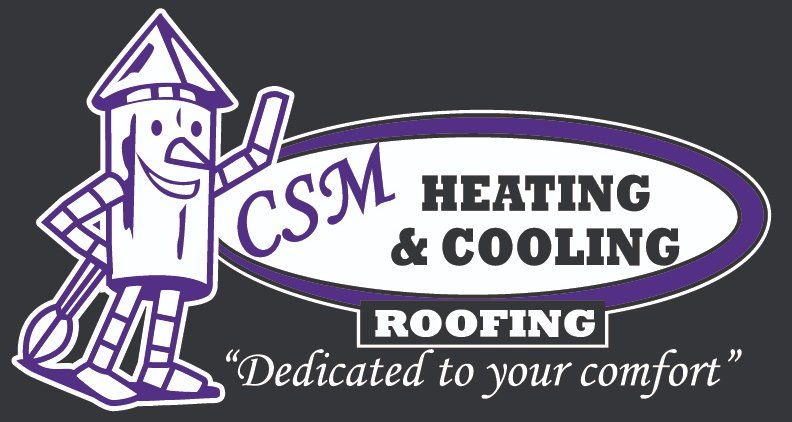
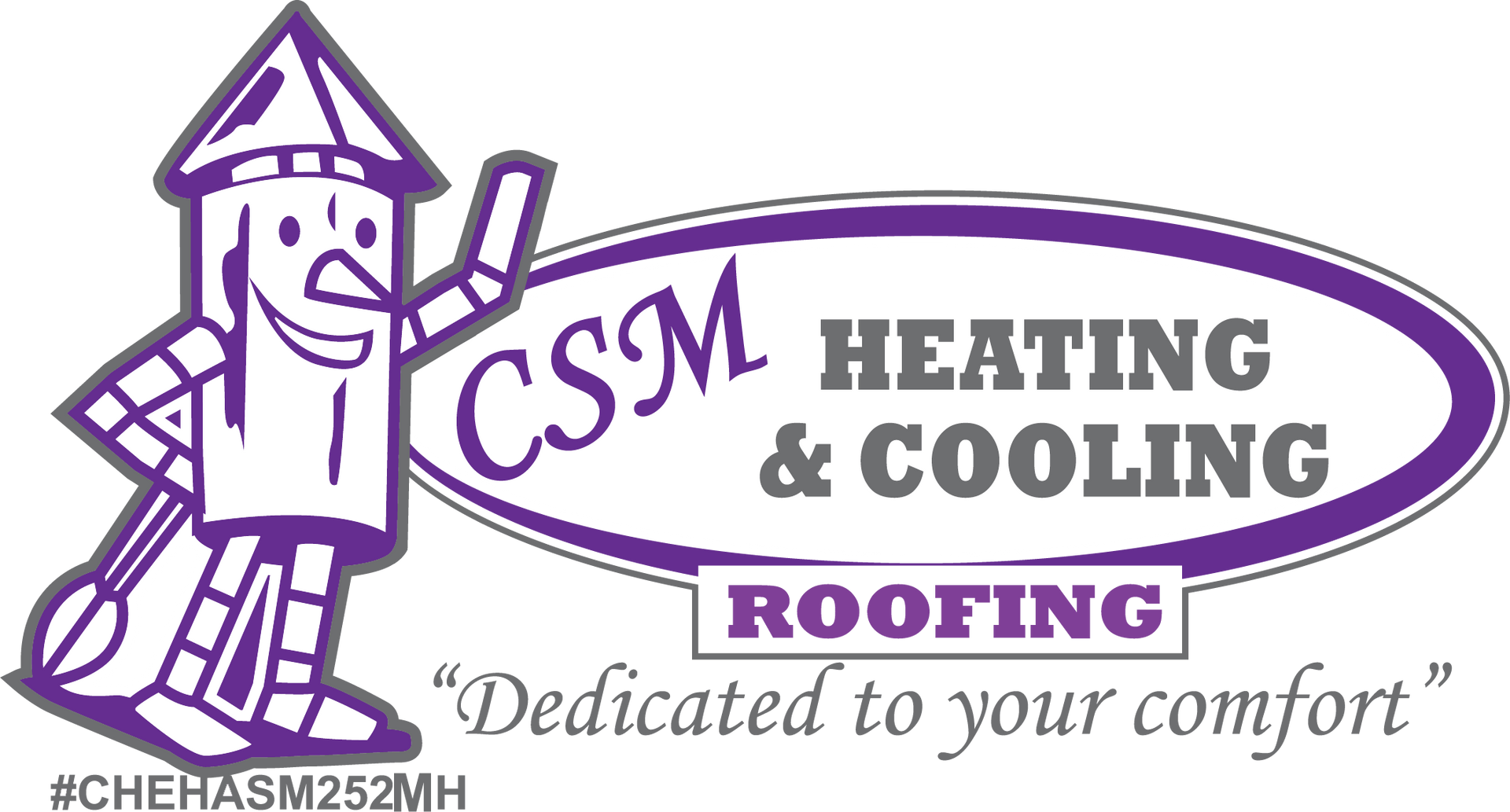


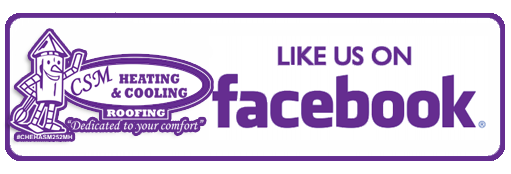
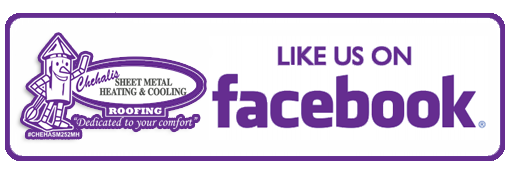
Share On: